Braskem
-
Europe & Asia
- Worldwide Sites
- Brazil
- Mexico
- United States
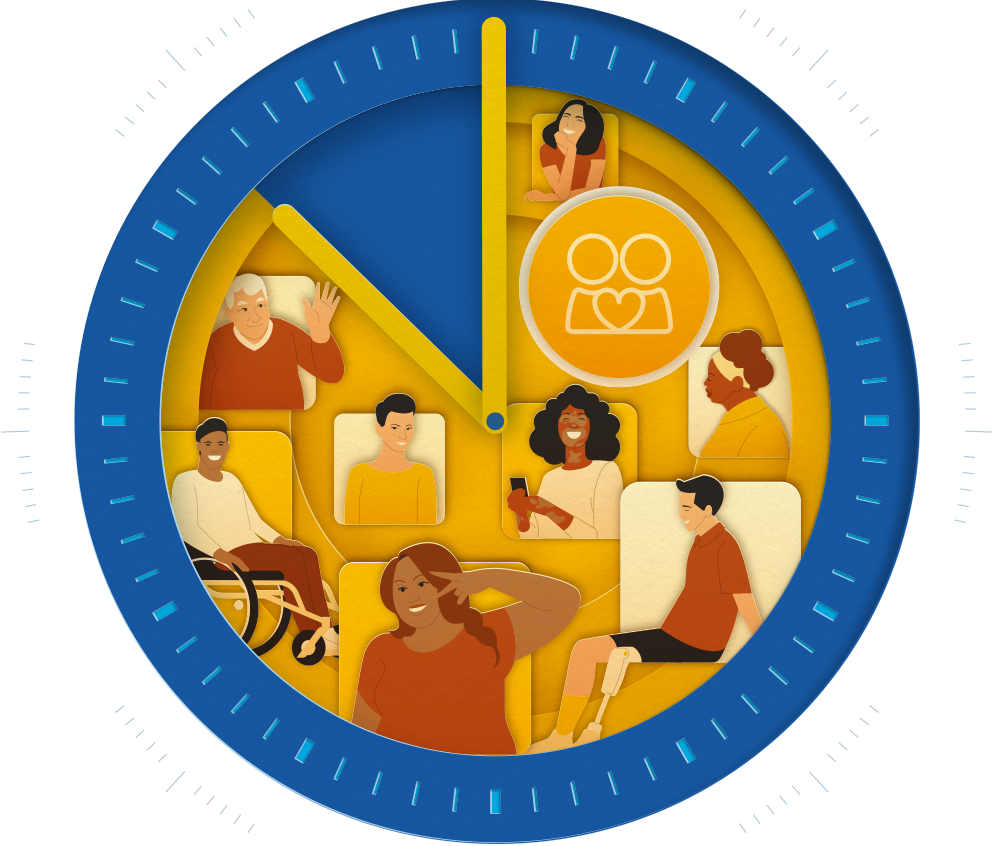
Our ambition is to promote human rights and equity in our supply chain and contribute to the local development of our operating regions. Caring for people is a premise we extend to our entire supply chain and the communities where we operate. Our efforts are divided into three main fronts: social responsibility, human rights, and diversity, equity and inclusion.
We understand our role in society and seek to act as agents of transformation. We believe it is our duty to contribute to the development of regions where we operate, generating shared value and well-being to all. In this way, we seek to strengthen the relationship with the communities around our industrial units through dialogue and transparency.
Our Private Social Investments seek to maximize the positive social impact resulting from our performance, contributing to the sustainable development of the communities where we operate and society as a whole.
The pillars that guide this investment are local development, sustainable consumption and post-consumption, and sustainable innovation and entrepreneurship.
Check out some Programs and Projects below that we support:
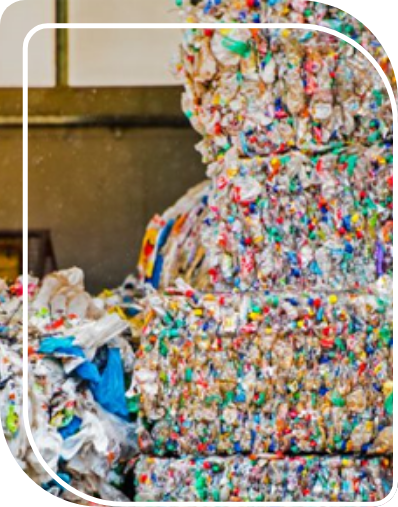
The project aims to promote social inclusion and socioeconomic development of workers from waste screening units by encouraging the development of the national recycling chain. In 2020, the program saw the participation of 40 cooperatives and benefited 1211 screening workers.
Location: Bahia, Alagoas, Rio Grande do Sul and São Paulo.
Braskem Partnership: since 2014.
Cause: Sustainable consumption and post-consumption.
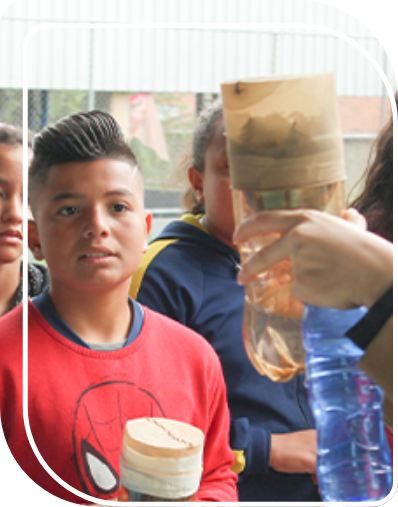
First online learning network on conscious consumption and sustainability. The content works with conscious consumption and post-consumption and is directed both to teachers and elementary school students from schools throughout Brazil. The platform has more than 57,000 registered users, with around 11,000 in the communities around Braskem.
Location: cities throughout Brazil.
Cause: Sustainable consumption and post-consumption.
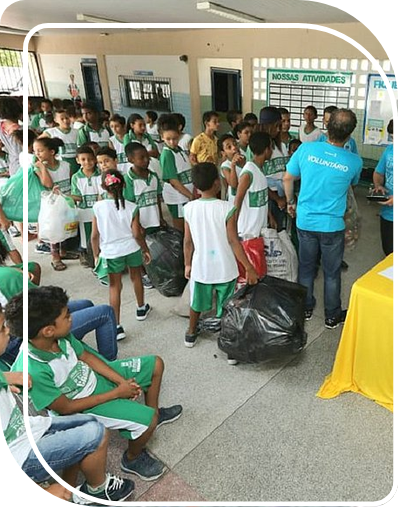
Plastitroque aims to highlight the importance of selective collection, awareness and correct disposal of each type of waste and to foster the recycling chain. Students from participating schools exchange recyclable plastics for plasticoins, which are converted into gifts, food or cleaning products.
Location: Bahia, Alagoas, Rio Grande do Sul, Rio de Janeiro and São Paulo. Cause: Sustainable consumption and post-consumption.

Since 2015, Braskem Labs has been the Braskem startup acceleration program, fostering innovative solutions that use chemicals and/or plastics or are targeted at the petrochemical chain, in order to create a positive impact on the environment and/or society.
Find out more at: http://braskemlabs.com.br/
Location: nationwide.
Partners: Akzo Nobel, AMBEV, BRF, and Grupo Boticário (2020 edition).
Causes: innovation and entrepreneurship.

The Program Formando Laços aims to bring Braskem closer to the communities, as well as university students, clients, suppliers, government and non-governmental institutions, press, among others, so that they learn more about our processes and facilities in Brazil.

The Environmental Stations are green areas, located around Braskem units in the states of Alagoas, Bahia and Rio Grande do Sul (Brazil). Spaces function as a learning environment on sustainability, conscious consumption, product lifecycle and biodiversity through a number of initiatives carried out at the sites.
Location: Alagoas, Rio Grande do Sul and Bahia.
Causes: Local Development, Sustainable Consumption and Post-Consumption.
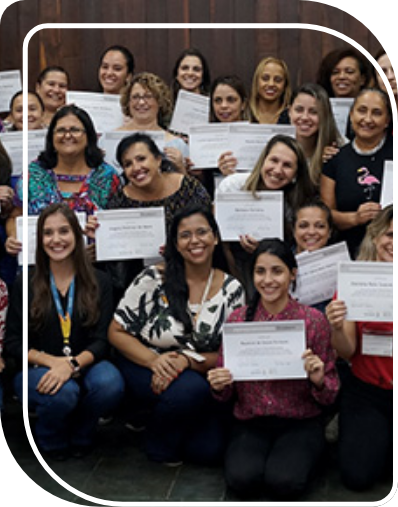
The project aims to promote the professional training of women in the regions surrounding Braskem’s industrial units. The training aims at female economic empowerment with a focus on entrepreneurship in a one-week course and with monthly mentoring sessions for six months.
Location: Mauá-SP, Santo André-SP and Duque de Caxias - RJ [Rio de Janeiro]
Causes: Sustainable Entrepreneurship
Partners: Women’s Entrepreneur Network
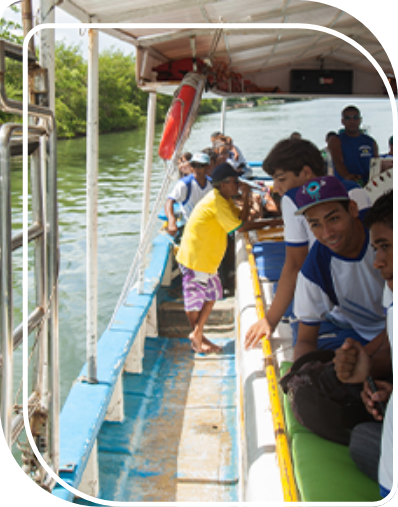
The program promotes workshops dedicated to environmental education and training to support environmental restoration and conservation, the generation of income from the population and the promotion of local culture in Maceió/AL (Alagoas). Over the years, it has contributed significantly to improving the quality of life of residents of the surrounding community, being an agent influencing public policies in the cities of Alagoas.
Location: Maceió, Alagoas.
Causes: Local Development and Education

This program is focused on teaching a new craft to those living exclusively off fishing. Technical training creates additional income for the fishermen, promoting social inclusion, improved quality of life and accelerating the local economy.
Location: Maceió, Barra de São Miguel, Marechal Deodoro and Coqueiro Seco (AL)
Partners: Unipropolis
Causes: Local Development and Sustainable Entrepreneurship.

Ecobarreir is a sustainable solution for the removal of waste from the Guaíba river in Rio Grande do Sul. The project, in addition to playing an important role in depolluting the river that supplies the city of Porto Alegre, receives the support of Braskem in environmental education actions through visits focused on awareness about consumption and post-consumption.
Location: Porto Alegre-RS
Braskem Partnership: since 2017
Causes: Sustainable consumption and post-consumption.

Professional training and income generation are the objectives of the Innovate to Build project. The content of the program highlights the various applications of plastic in construction, expanding knowledge about the versatility and advantages of the material.
Location: Duque de Caxias - RJ
Partners: FIRJAN and ASSECAMPE
Braskem Partnership: since 2016
Causes: Education, Innovation, and Sustainable Entrepreneurship

Focusing on social inclusion through music and culture, the Som+Eu project offers activities for children and young people during school shifts. The project features the Tubonic Orchestra, which produces and uses musical instruments from the reuse of PVC pipe plastic.
Location: Duque de Caxias - RJ
Braskem Partnership: since 2017.
Causes: Local Development
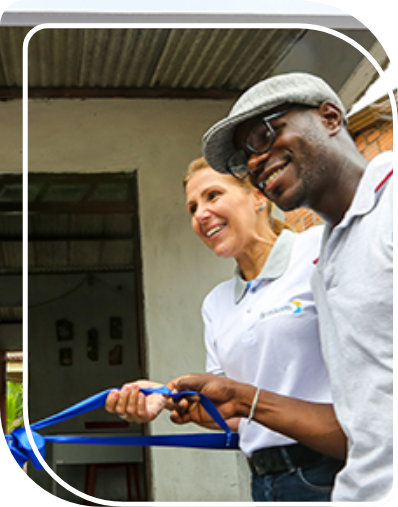
Braskem supports the Rede de Maré project, carried out with traditional communities of Ilha de Maré, in Salvador, Bahia. The focus is to promote the sustainable management of artisanal fishing in the region, as well as the environmental education of the community focused on the marine ecosystem.
Location: Salvador-BA
Partners: Maré Global Institute
Braskem Partnership: since 2015
Causes: Local development, innovation and entrepreneurship
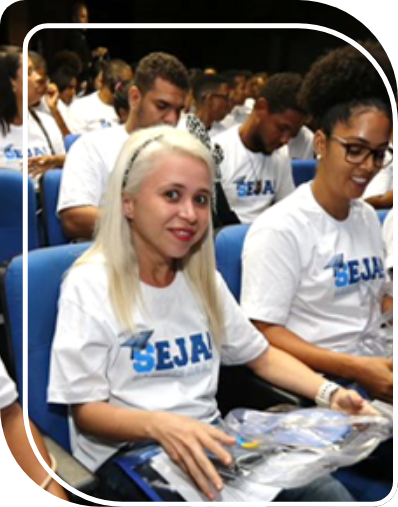
The purpose of Seja! Saberes da EJA is to unite individual vocations with the opportunity for professional qualification. The program is focused on vocational high school for youths aged 18 and over who have not yet completed this stage of school life.
Location: Camaçari-BA
Partners: Sesi and Senai
Braskem Partnership: since 2018
Causes: Education, Local Development.

Sport and culture for children and young people around Braskem’s units in the state of São Paulo. This is the focus of the traditional SECI Social Project and AZO Cultural Center, a reference for the community in the region since the 1990s.
Location: Santo André (SP) / Brazil
Causes: Local Development.

Held in Mexico, the project aims to encourage recycling and teach the Nanchital community to separate plastic waste. During the events, plastic waste can be exchanged for cleaning products and food for value supported by Braskem.
Location: Nanchital, Mexico
Causes: Sustainable consumption and post-consumption

In 2018, Braskem was elected the first official Diversity and Inclusion sponsor of the Franklin Institute in the United States. Together, Braskem and The Franklin Institute encourage diversity and inclusion through programs such as: Color of Science, Women in Science, and Introduce a Girl to Engineering, among others. These programs are aimed at encouraging a more inclusive view of science careers (STEM - Science, Technology, Engineering, Math) for the 21st century and include hands-on activities, special workshop offerings, as well as opportunities for individual interactions with academic leaders, industry executives and influential leaders.
Location: Philadelphia, PA, USA
Causes: Local Development, Education, Equity, Human Rights

The partnership includes the development of a recycling program for bottle caps and other plastic products and an online education platform for 30 schools in Philadelphia to teach students career opportunities in Science, Technology, Engineering and Mathematics (STEM) that’s inspiring the next generation of STEM leaders.
Location: Philadelphia, PA, USA
Causes: Local Development, Circular Economy, Sustainable Consumption, Post-Consumption, Education
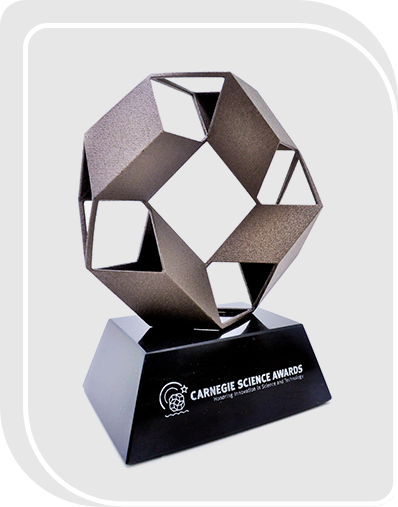
Since 2014, Braskem has sponsored the Entrepreneur Award for the Carnegie Science Awards program: to recognize outstanding science and technology achievements in Western PA. Our team members also volunteer as judges for the awards. In addition, in partnership with the museum, we sponsor the Pittsburgh Regional Science Awards that attract over 1,500 students. Three Braskem team members volunteer as judges and present (2) $500 awards for science projects related to our industry.
Location: Philadelphia, PA, USA
Causes: Local Development, Circular Economy, Sustainable Consumption and Post-Consumption, Education, Entrepreneurship, Equity, Human Rights

The Merseburg Lions Club in Germany organizes a charitable race annually. In 2020, Braskem was one of the sponsors for the 6th time (2020). With the money collected, social projects are carried out and for children and young people in the region, supported by the Lions Club.
Location: Merseburg (Wesseling), Germany
Causes: Local Development, Education
Our commitment to respecting human rights is in accordance with the United Nations (UN) Guiding Principles on Business and Human Rights and covers all internationally recognized rights and those expressed in the International Charter of Human Rights (Universal Declaration of Human Rights, International Covenant on Civil and Political Rights and International Covenant on Economic, Social and Cultural Rights) and in the International Labor Organization Declaration on the fundamental principles and rights to work¹. Our Global Sustainable Development Policy, approved by the Board of Directors, reinforces our commitment to the topic, also reflected and expressed in the Braskem Code of Conduct .
We understand that our actions may positively or negatively impact human rights. These impacts can occur in our own operations, in surrounding communities, throughout our supply chains, or even in society as a whole. In this sense, we adopt measures to prevent, mitigate and, if applicable, repair possible violations of human rights with which Braskem may be involved both through our own operations and as a result of the relationships of our business. In order to ensure integrated risk management, Braskem included the risks of violation of human rights in the Corporate Risk Matrix, accompanied by the Board of Directors and by Senior Management and reassessed every two years, thus guaranteeing a periodic and systematic review of the risks and opportunities of human rights.
¹ Including the Conventions of the International Labor Organization relevant to Braskem’s business and internalized by the countries where we have operations.
In 2017, we completed our first process of identifying and evaluating human rights violation risks related to our business. Through this work, we have been able to identify all possible risks that involve our operations and our supply chain. Seventeen risks of human rights violations were identified in Braskem’s operations, products or services, and the main ones in its chain.
The illustration below shows where each of the 17 identified risks can occur along our supply chain.
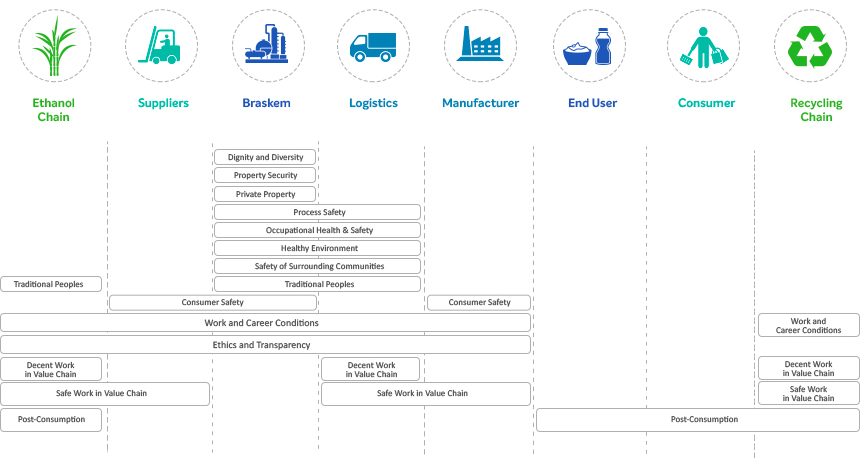
In 2020, we finalized a diagnosis and defined a plan of actions to advance the prevention and remediation of cases of harassment and discrimination at Braskem, including better ways to protect and welcome affected people, in addition to advances in processes that may avoid repeat cases. In the year, our complaint channel, the Ethics Line, recorded 388 reports and accounted for 578 cases as closed (comprising those received in the current year and in previous years), with 64 remaining in attendance for 2021. In relation to the reports classified as “as harassment”, of the 37 received in 2020, 36 were completed and ten of them led to remediation actions. Among the “discrimination” reports, all five received in the year were analyzed and four of these analyses were completed, three of which were not substantiated and one which led to the removal of a third party from the Company’s environment (ref. messages). The complaint not yet concluded is a possible discriminatory conduct carried out by a member of senior management who is still under investigation.
At Braskem, opportunities are for everyone. Our mission is to collaborate for a better and increasingly inclusive and welcoming society, ensuring equal opportunities for all(ies) through a Diversity, Equity, & Inclusion Program. Our Diversity, Equity, & Inclusion Program develops actions so that Braskem becomes increasingly diverse and inclusive, ensuring a work environment free of prejudice and discrimination, in which each person can be who they really are.
The program has three pillars:
Human diversity is a set of cultural, biological, social, and economic characteristics that make each individual a unique being.
A diverse group, community or organization is one where a diversity of these characteristics exists.
Equity consists of adapting the existing rule to a concrete situation in order to make it fairer. It is a process that starts by recognizing this uneven starting point and undertakes to correct and resolve the imbalance.
Inclusion is the appreciation and inclusion of populations that, for historical and social reasons, face barriers in society and in companies. It is the act of creating an inclusive work environment, training, visibility, respect and fair treatment for these populations.
In addition to actions developed across the board, that is, addressing diversity as a whole, we have initiatives directed towards inclusion and increasing representatives from historically sidelined groups, organized in five work fronts:
Progressively increase the number of black team members and leaders.
Ensure an inclusive and bias-free work environment.
Progressively increase the number of women in leadership, industrial and innovation and technology positions.
Promote a more inclusive industrial environment for women.
Ensure an inclusive environment, free of homophobia and transphobia.
Guarantee LGBTQIA+ team members access and knowledge of the benefits offered by the company.
Ensure inclusive communication.
Act in the inclusion of professionals with disabilities and reinforce Braskem’s commitment to social responsibility and human rights.
Promote an inclusive work environment.
Ensure the offer of job openings for youths aged 18 to 24 in social vulnerability situations.
Comply with the Learning Shares Act.
Our actions are guided by initiatives that we are signatories of and that offer guiding principles for work.
